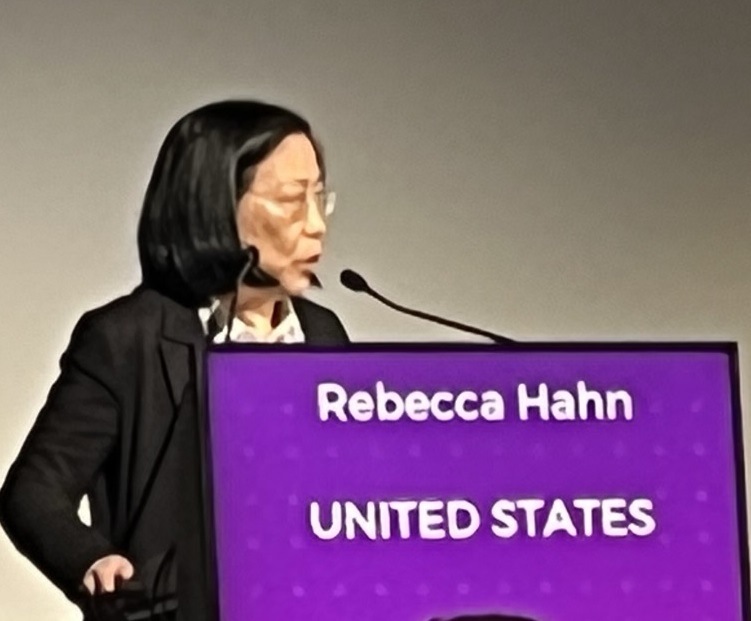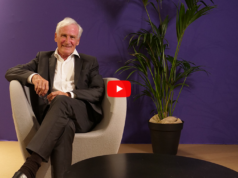 One-year outcomes of the CLASP TR study, investigating the use of the Pascal (Edwards Lifesciences) transcatheter tricuspid repair system, reported a significant reduction in tricuspid regurgitation among patients receiving the device.
One-year outcomes of the CLASP TR study, investigating the use of the Pascal (Edwards Lifesciences) transcatheter tricuspid repair system, reported a significant reduction in tricuspid regurgitation among patients receiving the device.
Headline findings of the prospective single-arm study from 14 sites in the USA were reported by Rebecca Hahn (Columbia University Medical Center, New York, USA) on behalf of the CLASP TR study investigators during a late-breaking trial session at EuroPCR 2022 (17–20 May, Paris, France).
“We now know that mortality increases with TR severity,” Hahn told EuroPCR 2022 attendees, pointing to data showing a “nearly linear” relationship between effective regurgitant orifice area as well as regurgitant volume. “We also know that outcomes with both medical and surgical therapies are suboptimal,” she added, explaining the rationale for the trial.
The study sought to investigate the efficacy and safety of the Pascal tricuspid valve repair system, described by Hahn as having independent clasps that allow staged leaflet capture and optimisation. Two iterations of Pascal device were used in the study, the Pascal and Pascal Ace, which was introduced after the study began enrolling. Hahn noted that the Pascal Ace is a narrower profile device with a smaller central spacer designed to complement the Pascal device, and towards the end of the study was the primary device being implanted.
In order to be enrolled in the study, patients had to be deemed to have symptomatic tricuspid regurgitation despite medical therapy and to be appropriate for receipt of the device. The primary endpoint was a composite of major adverse events (MAE) at 30 days. The trial has enrolled 65 patients in total, Hahn explained, noting that one-year follow-up is available in 46.
Describing the baseline characteristics, Hahn noted that 97% of the patients had severe tricuspid regurgitation, with just one patient deemed to have moderate-to-severe regurgitation. Successful implant was achieved in 91% of patients
Procedural success, defined as a reduction of tricuspid regurgitation of at least one grade of tricuspid regurgitation with no further intervention, was found to have occurred in 88% of patients, while clinical success, defined as procedural success without MAE at 30 days was 77%.
“A sustained TR reduction was seen in this study,” Hahn said, detailing the results of the study. “You can see at baseline [that] severe, massive and torrential [regurgitation] in nearly all patients, was reduced at 30 days to moderate or less in 75% of patients.
“Importantly, at that 30-day mark, looking at the first 34 patients versus the second 31 patients, the TR reduction to moderate or less was only 70% in the first cohort, and 86% in the second cohort.”
At one-year, 100% of patients improved by at least one TR grade, 75% by at least two TR grades, and 86% reached moderate or less tricuspid regurgitation, Hahn reported. In that setting there was sustained functional and quality of life improvements, she added, noting that 92% of patients achieved. New York Heart Association (NYHA) class I or II, while Kansas City Cardiomyopathy Questionnaire (KCCQ) scores showed a change of 18 points both at 30 days and sustained at one year.
Survival out to one year was 88%, while the freedom from heart failure hospitalisation rate was 79%, Hahn reported. “This meant that the annualised heart failure rehospitalisation rate was reduced by 56% in this cohort,” she said.
Greater TR reductions and shorter procedure times were achieved in the second half of the study, Hahn detailed, later ascribing this to the introduction of the newer-generation device, and improvements in patient-selection.
Considering the implications of the findings, Hahn described the Pascal device as an”…important option for treatment of patients with severe TR.”










